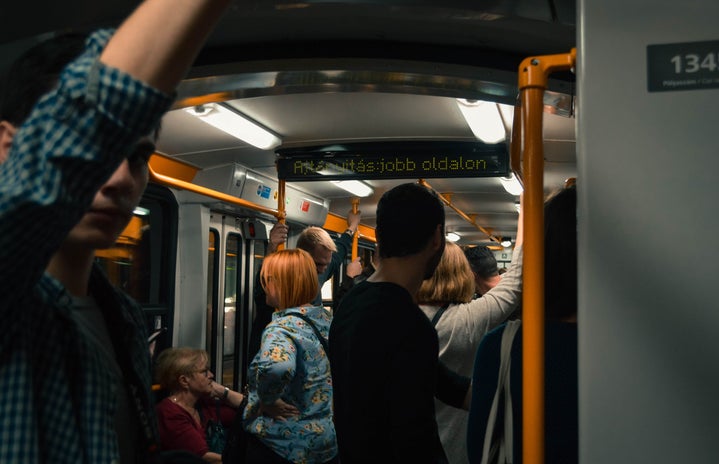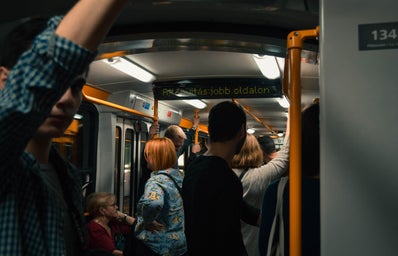Honestly, commuting to UW has been a pain in the ass this entire year. I can tell you the MANY reasons as to why that’s technically my fault since I could’ve lived on campus but, honestly, I did not enjoy the rowing team above my floor constantly running around the hall and seemingly jumping/falling off their beds every damn day. Safe to say I wasn’t too keen on going back to that or potentially having a worse situation next year. Plus, the pandemic sent me home during my freshmen year and then I kind of had no other choice than to move out from my parents as I was sharing a small room with my sister plus her old apartment’s stuff and my dorm stuff all in there. We were both desperate to get out of our parents’ house and have space. After going from living in a dorm to your own place in the middle of a pandemic, after you barely had time to get over being a somewhat shy freshman who didn’t make that many friends, paired with U District’s ridiculous apartment prices and limited parking EVERYWHERE, I wasn’t going to go back to dorms. I could’ve gotten an apartment or a single unit on campus but HFS prices were high to begin with for what you get and they’re only getting worse so that was also a no. Hence, I’m commuting from 18 miles away.
Now, 18 miles away really doesn’t sound that bad and if I go at like midnight or select times when traffic isn’t actually hell, it’s not too bad. Most mornings take 40-50 minutes to get to campus, with some random days where traffic isn’t bad taking like 30-35 minutes. Needless to say, I lose almost 2 hours a day just getting to and from school every day because traffic is just as bad if not worse, on the way back. Traffic going southbound from Seattle is actually the bane of my existence. On the day’s I don’t have a work or RSO related event later in the evening, I leave campus peak rush hour. So, you can just imagine how traffic is in the state’s largest city during rush hour. Unfortunately, though, I can’t really afford to drive every day of the week to campus.
Not only are gas prices raising because we’re literally in the middle of a historic inflation, but UW parking prices are also just very fucked up. Thankfully my car is pretty good on gas, but a parking pass costs me $8.75 a day. While buying a student parking pass is cheaper in the long run because it lets you buy them annually or quarterly at a discounted price, it’s also a pass for the ONLY lot the campus has for its entire 46,667 student body. So, not only is a parking spot incredibly hard to find, but it’s also completely on the opposite side of campus of where I work and where my classes usually are. So, buying a student parking pass for a whole year is not really worth it when you take into consideration the 20-minute walk, or bus ride that will probably be just as long if not longer. Considering I’d probably have to walk to the bus stop and potentially factor in waiting times or time the bus exactly, the bus ride would be longer. Either way, I’m losing more time which is why I have resorted to a parking pass on other lots either near work or in the plaza garage under red square. But unfortunately, there are no quarterly or annually parking pass options for other lots on campus so I’m stuck buying them daily, which sadly all adds up.
Since I work on campus, I can only work 19.5 hours a week and I get paid $16.89/hr. My small paychecks paired with rent, other bills and groceries among other necessary expenses, I’m quite literally broke. It’s really disappointing that students can’t work more than the mandated 19.5 hours if departments/units have the need for it and students want to. In my experience in 3 different positions all over campus, they could most definitely use the support of more workers, but not all may be able to afford it. This, points to the UW’s horrible allocation of funding. Not only are students being forced to live in an incredibly old dorm hall that has had rumors of mold and asbestos because the university won’t give HFS the funding to demolish it and rebuild a new dorm, but there’s overall funding allocation inequities all over the school.
Just look at the athletic department who almost never seems to be struggling with money, STEM departments who have whole new buildings dedicated to the entire major, while multiple non-STEM departments are pushed together in one single and usually very old building. Not to mention, it has left HFS to find their own funding to demolish Haggett Hall, the rumored asbestos + mold ridden dorm hall on north campus. HFS is struggling with money and with a high demand of on campus housing, Haggett Hall continues to be open. The UW clearly has its priorities in the wrong places and instead of allocating funds, resources, people and other necessary things to ensure that students have access to affordable and diverse housing options or are able to commute and park to the school they already pay tuition to attend, it chooses to spend its money on other things and paying the high wages of those higher up in the university hierarchy.
Now this isn’t really out of character for an institution like UW but, it still is incredibly disappointing. Seattle’s housing prices continue to climb as the dorms is too, and yet student employee minimum wage at the start of this academic year was $16.69/hr. and at 19.5 hours a week, this isn’t enough to cover a month’s rent for a studio apartment. Gross earnings for that rate and number of hours worked leaves students with $1,301.82. The gross total of students minimum earning is barely enough for a studio listed at $1200-$1300, which is on the cheaper side of an apartment in that area so, it definitely won’t be enough once taxes and other fees are taken out of our paychecks. This amount isn’t even taking other living and academic related expenses that would essentially be impossible to afford anyway. Unfortunately, the minimum wage increase that was effective January 1, 2022, to $17.27/hr., only gives students a monthly gross pay check of $1,347.06, which is still not enough.
UW has an incredibly huge campus and therefore, a huge student population. They have a vast amount of parking lots, with a huge multi-level one that’s underneath red square and yet, they have only one lot assigned for students. E18 is listed on UW Transportation services website as the only lot commuter students may purchase a pass for. I have luckily been a student employee most of my time here, so I believe that is what’s allowed me to buy parking passes in almost any lot on campus. But for non-student employee commuter students, they only have one lot to park in which in comparison to the number of students the university has, doesn’t seem like enough. Barring students from buying a parking pass in any lot on campus is a bit absurd considering the number of students the university has. Especially if you take into consideration that since Seattle is getting too expensive to live in, many are choosing to live a bit further away and commuting via driving is a more time efficient option.
Tuition prices are rising, housing and dining prices on campus are rising, Seattle housing rates are rising, we’re in the middle of an inflation, and yet the last minimum wage increase at the start of 2021, only raised wages up by $0.30. UW owes not only its student employee’s but all employees, livable wages. While I can really only speak to the experiences of being a student employee, I imagine staff wages are not enough for people to make ends meet, and maybe even including “lower” level faculty positions. What’s happening at UW is an example of what’s occurring almost everywhere across the nation. Either way, UW still has the responsibility to ensure its allocating funds accordingly in order to ensure student employees can actually afford tuition, housing/dining and other academic and living expenses. For a university with some prestige and a national level leader in research, you would think they would be able to find the money to ensure this somewhere. Perhaps the UW could start by examining funding inequities across departments/units first?


